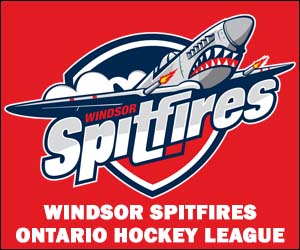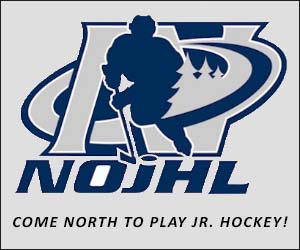Five favourite Spitfires
I have followed the Spitfires for a long time, having watched a multitude of Thursday night home games at rickety old Windsor Arena, beginning with their Ontario Hockey League debut season of 1975-1976.

The old Windsor Arena — built in 1924, located in the downtown area on the corner of Wyandotte and McDougall streets and affectionately known as ‘The Barn’ — served as the Spitfires home rink until 2008 when the franchise relocated to the WFCU Centre, where they would they would become multiple Memorial Cup champions.
I have a number of favourite Spitfires from the Windsor Arena days. And my five favourite OHL Spitfires of all time are as follows. (They are listed in chronological order of when they played for the Spitfires.)
Brad Smith. There are few who I have ever met in the game that are quite as engaging and likeable as this homegrown Windsor product. A down to earth individual with an upbeat personality who is known to many in the game as ‘Motor City Smitty’, the local lad was a star player who later coached the Spitfires.
After graduating from the OHL with the Sudbury Wolves after being traded by the Spitfires, Smith went on to a lengthy career in the National Hockey League as a hard-nosed, free-wheeling, journeyman forward. After retiring as a player, Smith returned to Windsor to coach the Spitfires in 1989.
A year later, with Smith as the head coach and Wayne Maxner as the general manager, the Spitfires put together a 33-29-4 regular season record and upset the favoured London Knights in seven games in a thrilling, opening round playoff series.
I have always really liked ‘Motor City Smitty’ as a player, a coach and a really good guy. And he is still in the game in a management scouting capacity with the NHL’s Colorado Avalanche.
Ernie Godden. Originally a later round pick by Kitchener in the 1978 OHL priority selections draft, the small, speedy center never played a game for the Rangers before being dealt to Windsor.
After two solid seasons in Windsor, Godden lit it up like no player in OHL history in 1980-1981 when he scored 87 — yes, 87 — goals for the Spitfires. Add in 66 assists and Godden finished the ’80-81 campaign with a whopping 153 points.

More than flash and dash, Godden was also a hard worker who played much bigger than his 5-foot-8, 160 pound frame. As great as he was, Godden also had grit, as evidenced by the 185 minutes in penalties that he served in the same season that he scored those OHL record 87 goals.
Billy Bowler. This is the poster boy for overcoming the odds. This is resolve and strength of will personified.
An afterthought as a 13th round pick of the Spitfires at the 1991 OHL draft, Bowler would develop to the extent that he would finish his four year career in Windsor as the franchise’s all time points leader with 467, including 149 goals and 318 assists.
Small in stature and just an average skater, Bowler’s skills and smarts as a play-making center helped take him from 13th round draft pick to OHL superstar. He also played with an edge and had a fibrous side to him.
Several years back, the Spitfires retired Bowler’s no. 9. Bowler has since come full circle and is currently the Spitfires general manager — and one of the best in the OHL at his job.
Cory Evans. Originally a seventh round draft pick of London in 1991, the hustling left winger from Sault Ste. Marie would play parts of three seasons with the Knights before being traded to Windsor where he became a point per game player with the Spitfires.
Though skating was his drawback, Evans was an on-ice leader for the Spitfires with a crashing, rambunctious style that resulted in a multitude of goals, assists and penalty minutes. Absolutely afraid of no one, Evans once tangled with Soo Greyhounds tough guy Brian Goudie and more than held his own with the fearsome enforcer.
Hard work and a relentless approach led to Evans playing three full seasons in the OHL and part of a fourth as a determined individual who became a very popular Spitfire.
Craig Kennedy. Another Sault boy, Kennedy personified consistency after the Spitfires took him in the second round of the 1999 OHL priority selections draft. A sturdy, hard-working right winger, Kennedy played five full seasons in Windsor, totaling 113 goals along the way, playoffs included.
Known for his smarts and leadership qualities, Kennedy quietly rose to become an assistant captain and then captain for the Spitfires before playing at the University of Western Ontario and eventually returning home to the Sault and becoming a school teacher.


















